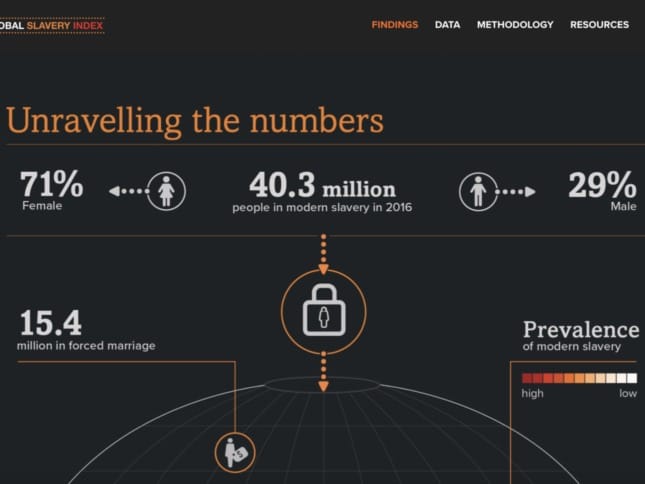GENEVA (AN) — Modern slavery overtook the lives of at least 40.3 million people worldwide in 2016, according to estimates by an international organization working to end the prevalence of one person taking away another person’s freedom to control their body or refuse work.
The latest figures are nearly double what was reported six years ago, owing to a new system of reporting data that now includes forced marriage as a form of slavery.









